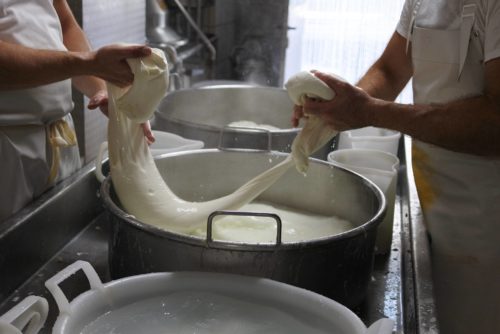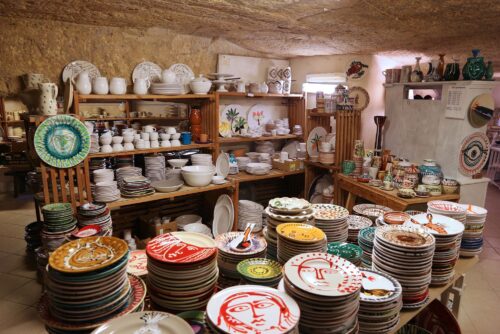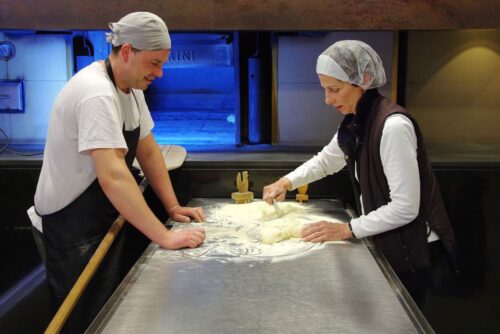Topics
The Italian region of Puglia is renowned for the production and art of tasting native olive oil. But have you ever wondered how to taste the olive oil? And which procedures you’ll need to know in effort to best enjoy this liquid treasure?

Also called “liquid gold“, Apulian oil is one of the main interests that arouses curiosity among the thousands of visitors who flock to the beaches and typical villages of Puglia every year. Tourists do not choose this region only for its blue coasts and enchanting landscape, but also for the authentic experiences it offers, especially in the food and wine world. Among these, understanding precisely where and how to taste Apulian olive oilis fully part of that desire to discover the Apulian identity transversally, inviting visitors to pamper their senses and savour the prodigious flavours hidden among the mills and local tastings tours.
Understanding the product: how to taste olive oil?
Tasting olive oil – perhaps done together with an oil expert – is a profound sensorial experience aimed at recognizing and appreciating the organoleptic properties of this Italian table’s protagonist. Immerse participants in a learning process, refining their ability to distinguish the nuances of taste, texture, and aroma that a less experienced palate might overlook, giving through the sensorial prerequisites to better understand how to taste Apulian olive oil. Learning to savour oil is not just a simple exercise but an art that brings its enthusiasts closer to the rich history and cultural meaningsof Mediterranean olive oil production. Let’s see below what the main phases are of how to enjoy 100% Apulian olive oil.
1. The visual aspect: clarity and colour
Before starting with the first sip, the visual appearance of the product is fully evaluated. A series of colour shades – which can range from vibrant green to gold or have reflections tending towards amber – can reveal the origins, freshness, and robustness of the oil. The colour is an initial clue that can suggest the variety and ripeness of the olives, as well as the time of harvest. Generally, bright green shades suggest an early harvest, while darker shades (..and tending towards gold) later pressing processes also outline a more robust aromatic profile.
2. Aromatic prelude: smell the bouquet
By inhaling deeply, the nose begins to reveal the aromatic bouquet of the oil, offering notes that range from herbaceous to nutty, in some cases even nuances of ripe fruit. These aromas, derived from the surrounding growing environment of the olives and the processing method, pave the way for the presumed expected taste, based on the information gathered from the olfactory symphony.
3. Mouth feel and taste: the complete experience
Finally, the sipping phase. As the oil coats the palate, mouthfeel becomes a crucial point of observation. Is it smooth, creamy, or thin? Does the tongue perceive bitterness, spiciness, and that tickle in the throat – the famous “pizzicata” – that distinguishes high-quality extra virgin olive oil? A harmonious balance between these traits is certainly a sign of excellence.
4. The ending: prolonging the pleasure
Persistent finish, or “retro-olfactory perception”, is what enthusiasts talk about when referring to the moments after swallowing. This phase tells of the persistence of the oil and its complexity of aromas and flavours. A deep professional olive oil tasting.
Where to try the best olive oil tastings in Puglia
The vast expanses of Apulian olive groves are a veritable cornucopia of taste waiting to be explored.

The region’s farmhouses and oil mills have elevated the tasting experience from a simple tour to a true sensorial odyssey, also bringing to the surface several places dedicated to oil that offer a real dive into the world of Apulian olive oils that are closer at hand.
Farmhouses: the oasis of oil: the characteristic Apulian farms – ancient rural estates often transformed into farmhouses – are the ideal setting for intimate olive oil tastings. Here, visitors can learn about the process of producing liquid gold, starting from the tree, and finishing at the table, while savouring the rustic and unique charm of these historic properties.
Local mills: witness the magic: to truly understand the art of olive oil production, a visit to an olive mill is essential. Guests can observe the production process first-hand, often guided by expert millers who share their centuries-old wisdom, offering insights into the modern and traditional methods used.
The territory of olive varieties: each area of Puglia boasts unique cultivation and pressing processes, the result of centuries of evolution of production techniques that a connoisseur will aim to explore at 360 degrees. From the robust oils of the Bari area to the more delicate products of the Gargano promontory, understanding the influence of territory on olive oil is essential to understanding how to enjoy Apulian olive oil in all its facets.
Pairing with puglian cuisine: the intrinsic role of olive oil in Apulian gastronomy goes beyond simple seasoning: it is a staple food, a flavour enhancer and a cultural cement that fixes the cuisine of the region. To fully appreciate the synergy between olive oil and Apulian dishes, it is advisable to conduct a professional tasting together with local delicacies such as orecchiette, burrata and taralli.
Cultural events and fairs: throughout the year, Puglia hosts numerous festivals and fairs celebrating its olive oil. These events not only offer ample tasting opportunities but also serve as cultural outreach centres, where visitors can take part in traditional ceremonies and witness dances and music rooted in olive harvest rituals of old.
Tribute to history and heritage: Apulian olive oils are much more than just a condiment. They are the embodiment of age-old traditions and the hard work of generations. Each tasting is a tribute to this legacy and provides a deeper connection to the place and the people who lovingly produce this precious elixir.
The educational value of tasting
Beyond the immediate pleasure, knowing how to taste Apulian olive oil means embarking on an educational journey capable of enriching the palate and mind.

These experiences convey the understanding of the quality and appreciation of a basic Mediterranean ingredient in describing the Mediterranean diet for centuries. While visitors to this picturesque region aim to get to know the real Apulian oil through a cultural experience that celebrates tradition and taste, we at Terrachevive will take care of recommending the best guided tours in an oil mill and the Apulian oil tastings not to be missed!
Ultimately, the art of olive oil tasting is not simply about discerning flavours, but about connecting with five senses to a place, its people and their love for this precious food. In Puglia, every drizzle of oil tells the story of the region’s past and promises a taste of the territory’s authenticity. Those who take part and understand how to enjoy Apulian olive oil will also be lucky enough to store memories of an experiencethat has forever changed their perceptionof this iconic condiment.





